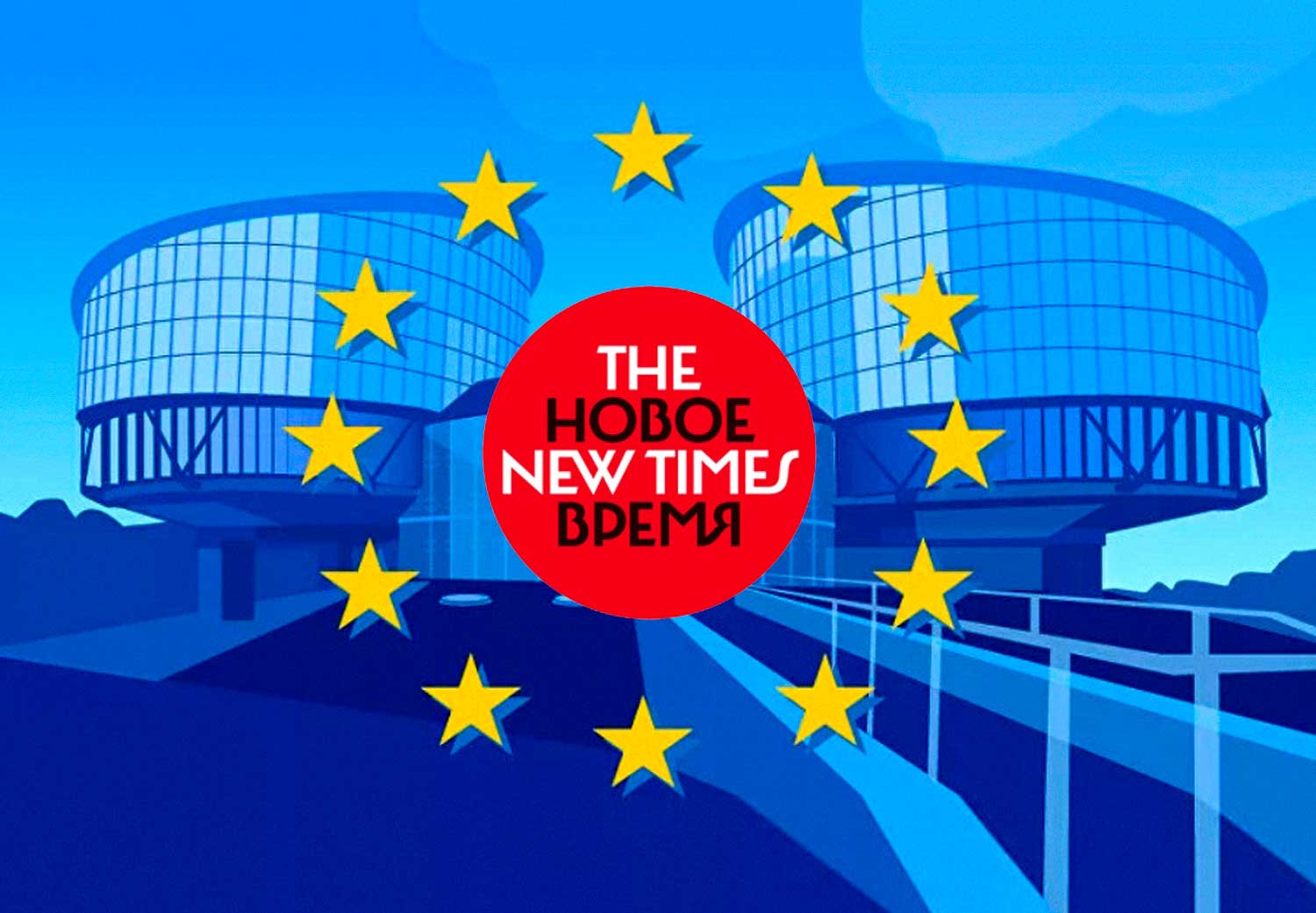
NT was fined back in the previous, pre-war life — on October 26, 2018, by the magistrate of judicial district No. 367 of the Tverskoy district of Moscow. All the details can be read here: newtimes.ru/articles/detail/171867. Thanks to our readers: within 96 hours, 18,000 people transferred 27 million rubles to us, the average transfer was 300–500 rubles. Transfers came from all over the country — from Sakhalin and Kamchatka to Moscow and Kaliningrad. Those were great days and hours — there is no better reward for journalists than to see how readers fight for the magazine.
We paid the fine, but became completely bankrupt. In Russia, we went through all the courts, including the Supreme Court, with a known — negative — result. In 2019, lawyer Galina Arapova submitted our case to the European Court of Human Rights. Five years passed — and we won this case.
This is how it is described in the ECHR decision (link):
«...As for the media organization, 'The New Times' (publisher The New Times. — NT) (No. 27874/19) itself was not recognized as a 'foreign agent', but was fined for not reporting the receipt of funds from another Russian NGO, which is a 'foreign agent' (our 'Support for Independent Media' fund, which was recognized as a 'foreign agent' back in 2014. — NT). The fine of 22,500,000 rubles amounted, according to the court, to 99.7% of the organization's total budget for the previous year and became the largest single fine ever imposed on a Russian media organization. The court believes that the authorities issued hundreds of fines against the media organization over several months. Each publication was considered a separate offense, leading to a total liability amounting to several hundred million rubles. The court reiterates that since the main offense was merely regulatory in nature, and the content of the publications was not declared false, illegal, or constituting hate speech or discrimination, such fines represented an 'excessive burden' and were equivalent to a form of censorship aimed at suppressing criticism and undermining the organization's contribution to public debate. Moreover, imposing fines on individual content creators for failing to comply with labeling requirements shortly after their inclusion in the 'foreign agents' list, without providing them a real opportunity to adapt to the new requirements, indicates the authorities' intention to suppress critical voices and create a chilling effect on freedom of expression. Such an approach seems intended to discourage people from participating in public discussions, rather than pursuing legitimate goals of transparency or national security.
The imposition of a significant fine, which was confiscatory in nature and applied in a situation where the legitimate origin of the funds and compliance with tax obligations were not in doubt, is clearly a disproportionate punishment. This put the media organization on the brink of bankruptcy and undermined the protection of freedom of expression in accordance with Article 10 of the Convention /.../ ...»
The New Times, the remnants of its editorial staff, and the editor-in-chief sincerely thank lawyer Galina Arapova, for leading our case in the ECHR for five years, so to speak, pro bono, that is, without any compensation, and achieving a positive result.
Only a small thing remains: to achieve payment from the Russian state.
* Yevgenia Albats was declared a 'foreign agent' by the Ministry of Justice of the Russian Federation.